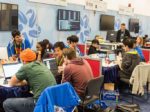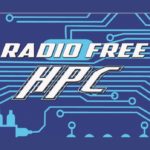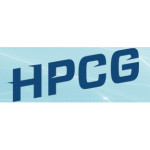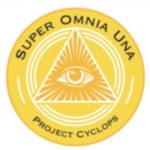In this special guest feature, Dan Olds from OrionX.net continues his series of stories on the SC19 Student Cluster Competition. Held as part of the Students@SC program, the competition is designed to introduce the next generation of students to the high-performance computing community. “Nanyang Tech took home the Highest LINPACK Award at the recently concluded SC19 Student Cluster Competition. The team, also known as the Pride of Singapore (at least to me), easily topped the rest of the field with their score of 51.74 Tflop/s.”
ISC19 Student Cluster Competition: LINs Packed & Conjugates Gradient-ed
In this special guest feature, Dan Olds from OrionX shares first-hand coverage of the Student Cluster Competition at the recent ISC 2019 conference. “The benchmark results from the recently concluded ISC19 Student Cluster Competition have been compiled, sliced, diced, and analyzed senseless. As you cluster comp fanatics know, this year the student teams are required to run LINPACK, HPCG, and HPCC as part of the ISC19 competition.”
Epic HPC Road Trip Continues to Sandia National Lab
In this special guest feature, Dan Olds from OrionX continues his Epic HPC Road Trip series with a stop at Sandia National Laboratories in New Mexico. “Ken discussed how Sandia is hoping to stimulate more of a system-on-a-chip type of technology where extra CPU real estate might be better utilized for better HPC componentry and customization.”
Epic HPC Road Trip leads to Gary Grider at Los Alamos
In this special guest feature, Dan Olds from OrionX continues his Epic HPC Road Trip series with a stop at LANL in new Mexico. “Our conversation started with the open question: where do you see HPC going? He’s not wild about the fact that today’s machines are still being designed for dense matrix type problems along the lines of LINPACK rather than the sparse matrix problems that are much more prevalent today.”
Radio Free HPC Ponders Amdahl’s Law, GPUs, and the ASC19 Student Cluster Competition
In this podcast, the Radio Free HPC team reviews the results of the ASC19 Student Cluster Competition and HPC workshop in China. “For the first time, a non-mainland-Chinese team wins the top spot. Taiwan takes the gold in part by their stellar performance in HPCG benchmark where they achieved 2 TFlops, some 25% better than the 2nd best team. The system was a 5-node cluster with Infiniband FDR interconnect.”
The Green HPCG List and the Road to Exascale
In this special guest post, Axel Huebl looks at the TOP500 and HPCG with an eye on power efficiency trends to watch on the road to Exascale. “This post will focus one efficiency, in terms of performance per Watt, simply because system power envelope is a major constrain for upcoming Exascale systems. With the great numbers from TOP500, we try to extend theoretical estimates from theoretical Flop/Ws of individual compute hardware to system scale.”
HPCG Benchmark offers a alternative way to rank Top Computers
“The LINPACK program used to represent a broad spectrum of the core computations that needed to be performed, but things have changed,” said Sandia researcher Mike Heroux, who created and developed the HPCG program. “The LINPACK program performs compute-rich algorithms on dense data structures to identify the theoretical maximum speed of a supercomputer. Today’s applications often use sparse data structures, and computations are leaner.”
Single Node “Cyclops” Supercomputer Looks to Set Records
Today the Radio Free HPC podcast team announced announced plans to build what they hope will be the “fastest single-node supercomputer in the world” for the High Performance Conjugate Gradients Benchmark (HPCG). “Codenamed “Project Cyclops”, the single-node supercomputer demonstrates the computational power that individual scientists, engineers, artificial intelligence practitioners, and data scientists can deploy in their offices.”
HPCG Performance List Released at SC16
“This is the sixth list produced for the emerging benchmark designed to complement the traditional High Performance LINPACK (HPL) benchmark used as the official metric for ranking the TOP500 systems. The first HPCG list was announced at ISC’14 two and a half years ago, containing 15 entries, the SC’15 list had 60 and ISC’16 had 80. The current list contains more than 100 entries as HPCG continues to gain traction in the HPC community.”
Deep Learning, Ocean Modeling, and HPCG Come to ASC16 Student Supercomputer Challenge
Today the ASC Student Supercomputer Challenge (ASC16) announced details from their Preliminary Contest on January 6. College students from around the world were asked to design a high performance computer system that optimizes HPCG and MASNUM_WAM applications under 3000W as well as to conduct a DNN performance optimization on a standalone hybrid CPU+MIC platform. All system designs along with the result and the code of the optimization application are to be submitted by March 2.











